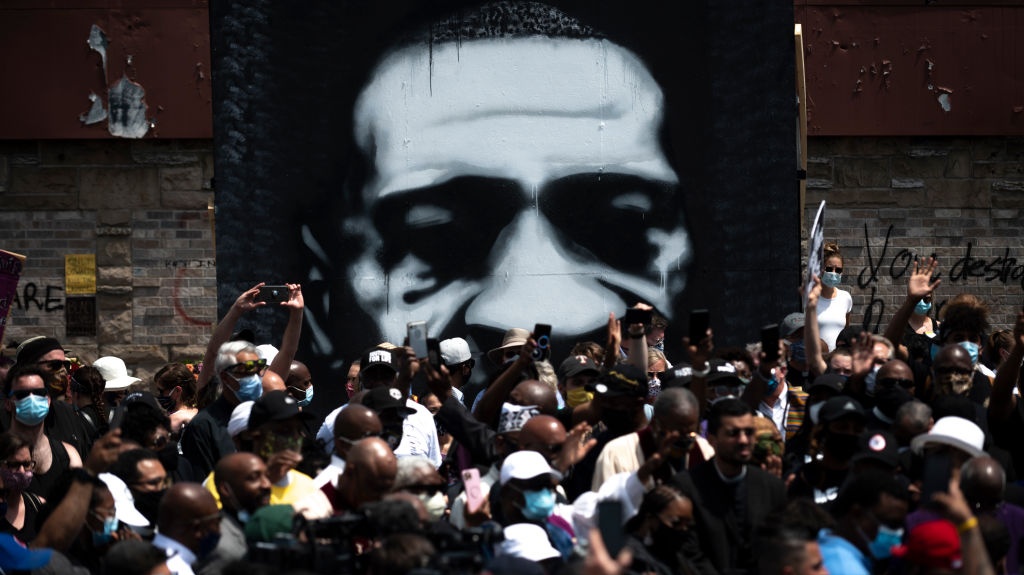If you’re interested in sharing your opinion on any cultural, political or personal topic, create an account here and check out our how-to post to learn more.
____
Like most of America, I’m tired.
I’m genuinely mentally and physically exhausted, but not for the reasons many may think.
In America, mainstream discourse fails to reckon with the full scale of an issue.
The killing of George Floyd and countless Black Americans at the hands of the police has evoked a plethora of triggering emotions and tensions for me. These same tensions have been bubbling within the Black community for centuries. But there has been little talk in the discussion on policing in America as it relates to sexual violence.
January 1, 2019, was a day I’d never forget. It was the day I was sexually assaulted by a white man. May 25, 2020, was the day George Floyd lost his life to one.
My assault was my personal May 25, 2020.
The chants of “no justice, no peace” have been faintly playing in the back of my head since. As it repeats in my head, I began to think about the other forms of injustice forced upon my community. I wonder how do we, survivors, ever fully get our peace when justice isn’t and can’t ever be given?
I was sexually assaulted on January 1, 2019, however, almost three months later on March 25, I went in for an unrelated jaw reconstruction surgery but came out unable to walk. This was called “conversion disorder,” which is the conversion of psychological stress into a physical reaction. Basically, the stress from being sexually assaulted literally paralyzed me.
I was stressed because my rapist had apparently done this to others. I was stressed because although I wanted to report it, I was scared because my rapist was a white man and I’m a Black woman. I was stressed because of the historical context of white men violently raping Black women since slavery. The moment I was strapped down for surgery surrounded by white male doctors and surgeons, I panicked. My leg began shaking and I immediately was brought back to that night, while also being under anesthesia.
Let me paint a picture of what it's like to be a Black woman in America and a survivor of physical and mental trauma. Imagine, waking up and seeing videos and pictures of white men abusing their power by destroying, inflicting brutality and ultimately ending Black lives. I remember watching the video of George Floyd. All I could stare at was the face of the murderer, as he kept his knee on the throat of an unarmed Black man begging for air. Then to later discover that this same officer has 17 complaints filed against him, including one where he dragged a woman out of her car during a traffic stop.
This connection is not a coincidence. There is an underdisccused epidemic of sexual violence throughout U.S. police departments, disproportionately affecting Black women. In debates about the role of police, it is a common retort to ask what we would do with rapists if cops were severely diminished. This ignores not just their own violence, but that hundreds of thousand of rape kits are untested. How could I and countless other survivors get justice from perpetrators of the same violence?
One afternoon, during all of these protests, I told my partner I was ready to go, and he knew what I was talking about. Beforehand, I was watching Facebook Live as NYPD mowed down protestors; immediately after, I got a call from a close friend in NYC. She was there, she is Black and she was in the crowd fighting for Black humanity and justice. Moreover, she is also a survivor of sexual assault like myself, and had now just been assaulted by the police.
So many emotions came to mind — the fact that this friend was sexually assaulted and never got her justice, suffering again, but this time at the hands of those who are supposed to “protect her.”
I had kept the shirt I had been raped in and was now ready to burn the last physical remains of the assault, as suppressed anger welled up from witnessing a constant stream of violence on social media.
We arrived and picked a spot at an empty BBQ pit in Culver City to burn the shirt. Police were flying past and the constant sound of fireworks hummed in the background.
Burning it brought back so many emotions that I didn’t want to feel but needed to. My anger with my white rapist. My anger with my non-Black doctors. My anger with the police department who handled the case. My anger with the district attorney office closing my case and never telling me. My anger with my “white” male friends choosing an abuser over me. These systems that were supposedly designed for me to get justice had denied me at every avenue.
We left, and as we headed back I began chanting in my head again, “no justice, no peace, no justice, no peace.” I hate that there’s “no justice” and “happy ending.” I hate there’s no movie-like closure, which I could never possibly feel as I watched more and more violence be inflicted against my people.
When we talk about policing in the U.S. we have to acknowledge the full array of violence they have inflicted on Black people. The more we narrow our discussion of the problem, we allow injustice, violence and oppression to fester.
No justice, no peace.
